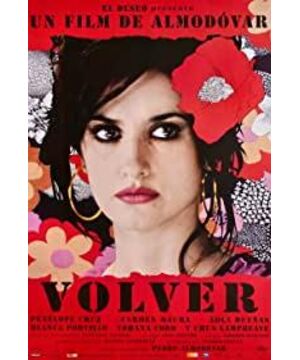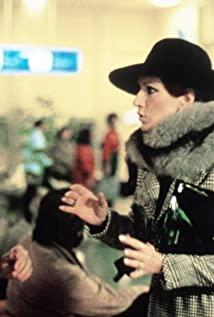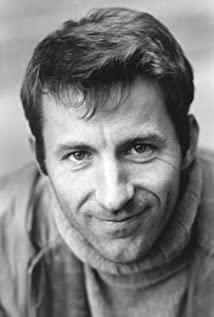In fact, I didn't know much about Almodovar before, but since watching "Everything About My Mother" directed by him, I have become obsessed with this fat Spanish director. "Everything About My Mother" has won many international awards. His content involves a mother, a heroic and epic great woman; later I watched his "Bad Education", which is like a maze His narrative, and the way in which fiction can be integrated into reality has allowed me to see the director's mastery. In my opinion, among the so-called big directors in the world, most of them are good at a kind of narrative from the classification standard of the content and form of the film. It is rare that they can tell the story well, such as the current director Zhang Yimou. The movie is bad enough—Jiao Xiongping even commented that Zhang Yimou is the least telling story among Chinese directors. And those directors with a certain avant-garde mostly focused on subverting tradition in form. Shinto made various experimental innovations in films, completely depriving the film of its popular character and reduced it to a small group of elitist narratives. Discourse. The outstanding thing about Almodóvar’s director is that he can control any film narrative. While paying attention to the exploration of formal discourse in a film, he presents a good story to the audience. Being able to tell the story well is the most basic requirement of a film director, and it is also the highest requirement. Almodóvar has always believed in this since the beginning of his involvement in the film industry.
This is the first time I have watched this "Return"? It seems that I have not remembered it clearly. There are not too many sensational commercial elements in this film, everything is so natural and easy, in fact, some people classify this film as comedy. But is it a complete comedy? It is about the pain in life, about the feelings of three generations of women, about the tragedy of murder, about the difficulties of life, and about the beauty of life. Perhaps the overly complex emotions cast a shadow of prejudice in the interpretation of this movie, but when you see the three generations of women truly reconciling, letting go of the past, and embracing each other, you realize the true meaning of "return".
Many of the themes in Almodovar's films are women. If a man appears, then it is also a man who wants to become a woman. Almodóvar seems to have a deep respect for women, even those who are transgender. In a film directed by a male director, the final absence of a male is a great irony. In "Return", men are also absent. The men who appear in the background have no concept of family and are far away from their wives and children. Women have even become accustomed to the absence of men in their lives. They are all in their lives, so We can understand that when the heroine played by Cruz accidentally killed her husband and buried him quietly by his favorite river during his lifetime, life was still accustomed to it, and people were accustomed to it. The passage of time concealed the pain in my heart and forgot the existence of men. Three generations of women shared a secret of killing their husbands. These have nothing to do with the "husband killing" complex, they just want to live a good life.
Almodóvar mentioned in an interview the absence of the law and the absence of the trial in his film. In fact, the absence of law in "Return" is the basis for the return of human nature. The law does not actually solve the problem of human nature. Almodovar said: "I personally think that violation of the law is not something I have shown, because it contains a certain respect, a certain recognition of the law, which is not my strong point.... Illegal is a moral vocabulary, and my motivation is not. Violation of certain norms is only to portray my characters and their behavior. This is the right of the film director and his power." From this perspective, Almodóvar’s films are above reality. " "Return" has certain characteristics of surrealism.
View more about Volver reviews










